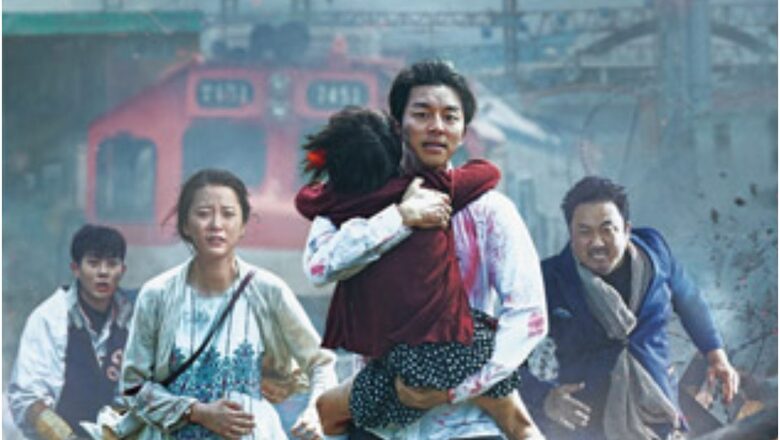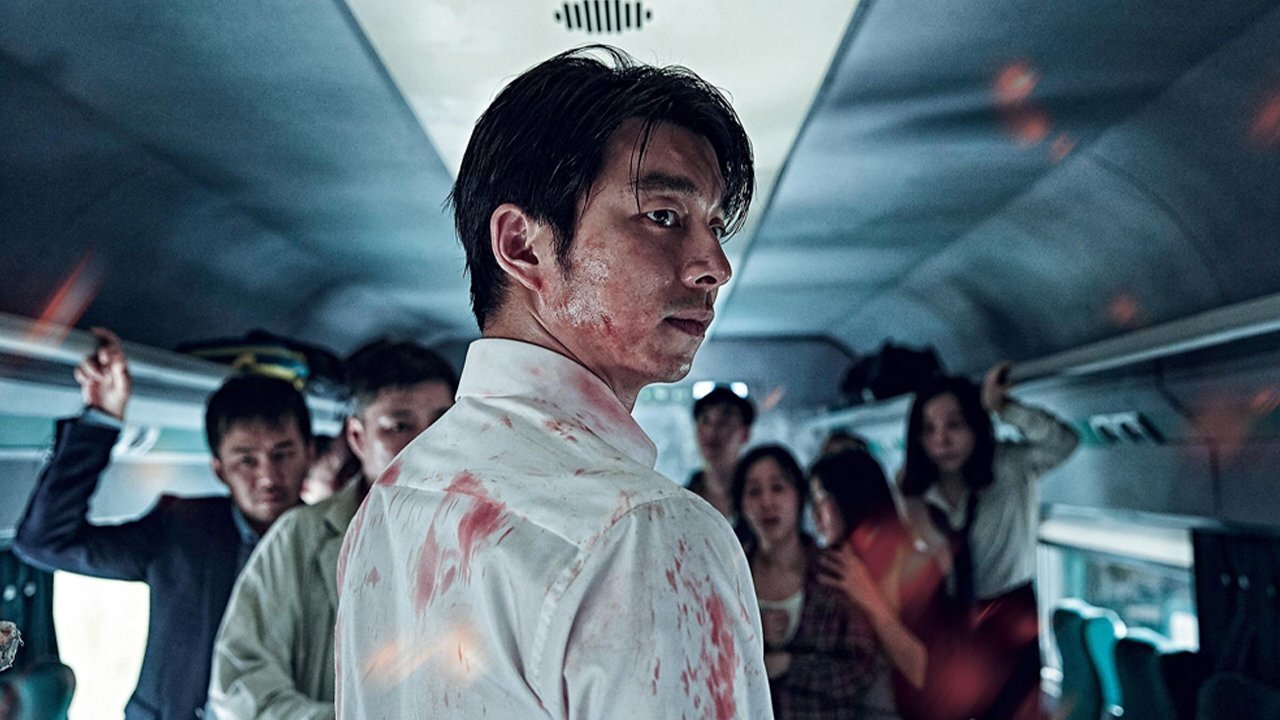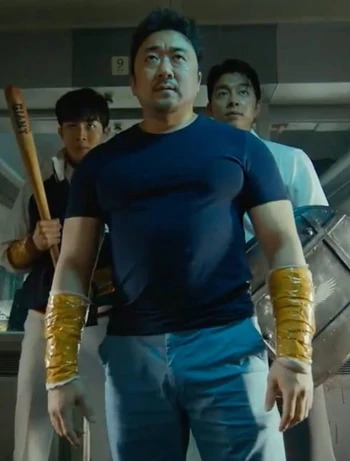
views
In this weekly column, Reel Retake, we compare the original film and its remake. Beyond highlighting the similarities, differences and measuring them on the success scale, we aim to discover the potential in the storyline that spurred the thought for a newer version and the ways in which a remake could possibly offer a different viewing experience. And if that is the case, analyse the film.
In focus this week is South Korean zombie film Train to Busan (2016). Only recently has its Hollywood version been announced, which is untitled yet.
What’s Train to Busan about?
A zombie apocalypse is spreading across South Korea after a chemical leak is discovered. Cities are overrun with blood sucking, half dead zombies but unaware of this, Seo Seok-woo (Gong Yoo) decides to take his daughter Seo Su-an (Kim Su-an) to Busan via a train to meet her mother. His co-passengers include working-class man Yoon Sang-hwa (Ma Dong-seok) and his pregnant wife Seong-kyeong (Jung Yu-mi), selfish COO Yon-suk (Kim Eui-sung), a high school baseball team, a train attendant, two elderly sisters and some others.
As the train departs with the passengers, an infected woman runs aboard, unnoticed, just before the doors close. She soon turns into a zombie, attacks an attendant, and many crew and passengers are quickly turned. At this point, it becomes clear to everyone on train what lies ahead. The remaining passengers figure out that the zombies can attack them only if they see or hear them. The zombies operate the train’s doors. The scared passengers secure themselves in the front and rear cars as zombies are trapped in between. Seok-woo meanwhile discovers the biotech plant that is connected to his business is behind the chemical leak. He uses his connections to try to secure safe travels for Su-an and himself.
The train stops at a station, supposedly secured by the South Korean army. The passengers disembark into a vacant station, but soon find the soldiers have become zombies, who quickly charge at them. The passengers race back to the train but many are attacked and killed. The survivors board the moving train. The captain drives the train to Busan after learning it has been established as a quarantine zone. Seok-woo and the group devise a plan and decide to walk to the front of the train when a tunnel arrives. They complete most of the journey walking with zombies around, but right before the secure car in the front of the train, they alert the zombies of their presence. Seok-woo and Sang-hwa hold the doors closed while the others escape. Sang-hwa sacrifices himself to give Seok-woo time to get the others to safety.
The other passengers in safety force Seok-woo’s group into a closed vestibule fearing they are infected by zombies. The train is forced to stop near a train station due to a blocked track, forcing the survivors to seek a new train. In the last lap to security, many sacrifices are made. Seok-woo is also bitten and throws himself off the moving engine, leaving his daughter Su-an safe with Seong-kyeong. They are the only survivors left. They are forced to stop at a blocked tunnel just before Busan. At the tunnel’s exit, military snipers prepare to fire until they hear Su-an sob singing. They then realize that the pair are human, and help them to safety.
Wherein lies the potential?
Train to Busan from director Yeon Sang-ho is a genre defining film. Until it came out, only Hollywood was excelling in making zombie films and had the right template for it, which it kept on experimenting with Night of the Living Dead franchise, 28 Days Later and others. But what makes a zombie film successful? It merges hope with bleak storylines. They are always riddled with optimistic themes that are cathartic. Horror becomes an intrinsic element as they represent contemporary fears and anxieties. All this is in Train to Busan and more. It turns the familiar into the dreaded. The bullet train, which is a modern day mode of transport, entire cities and a biotech lab as the root cause of it all fuel our unease with advancement and sharply criticise human action and modernity.
Apart from the pressing contemporary issues it touches upon, Train To Busan is a cinematography masterpiece. A crammed up train becomes the stage for one of the best choreographed action sequences. The first fifteen minutes of the film are spent in making us, the viewers, aware of the zombie outbreak and when the action gets a head start, it takes us on an exhilarating ride, never to end. The claustrophobia of the train compartments and the idea of getting stuck with zombies is chilling and the set up is used to maximise the tension and mayhem. The set pieces are also nerve-racking. Like when the Seok-woo is travelling from one end of the train to another dodging zombies or when the military zombies attack the passengers are thrill-educing that elevate the suspense to nail biting moments. The monsters are really fast, and they attack at lightning speed. Thus, the pace of action and terror is automatically increased. The only moments when there is respite from the rapid action is in high speed shots, when the focus shifts to the characters and their trauma. Heroes then emerge from unlikely situations.

Given the rapid pace of the action, some emotional connection is needed to prevent the film from turning into a technical exercise. Thus, Seok-woo’s reform from a workaholic to a caring father to his ultimate sacrifice or Sang-hwa keeping his pregnant wife safe at all cost, makes the film a good blend of warmth and excitement. The extended sequence in which the driver tries to switch trains is choreographed with the utmost suspense. The editing maintains the genuine shock value and raises suspense to nearly unbearable levels.
Also the fact that in the midst of a zombie outbreak, selfish motives drive humans to betray their own race is something that disgusts and adds another dimension to the story. The true enemy then becomes the living, not the half-dead zombies. The emotional roller coaster ride it will take you through cannot be put into words. The scenes with zombies are so well directed that it has made Train to Busan a top-notch action entertainer for the fans internationally as it keeps getting discovered more and more. It also has a high re-watch value.

Is Hollywood remake of Train to Busan a good idea?
Hollywood’s decision of a Train to Busan remake has been met with criticism from fans. Some have even termed the call outrageous. Although a zombie film can be traced back to the West, Train to Busan goes separate from its predecessors in tone and manner and that has been a major reason for its breakout success. The fact that Timo Tjahjanto is set to direct it still puts some faith. He has been successfully making action and horror films in Indonesia like May the Devil Take You and Headshot that have received attention due to gore and extreme violence as well as their action sequences. Something that is common in Train to Busan. But considering the mainstream success the original film has got, it seems a risk more than a reward. It is also terribly soon for a remake, especially since the film has had a long and successful afterlife on streaming services. Moreover, the success of Asian remakes in Hollywood is debatable. The Ring, Grudge, Oldboy are some examples of terrible remakes done in the West of classics.
Success meter
Train to Busan should be watched by every film lover. The heightened moments of tension will put you on the edge and that is where you will be enjoying the film from. Upon its release, the movie received tremendous box office success locally and continues to find appreciation. Western films featuring zombies have always been huge hits in Asian market and there was not a single Korean zombie movie until Train to Busan. And with this, Koreans have left an indelible mark on the genre of horror and action with zombies. It also opened the doors to more such films from the East. Train to Busan also came out with a sequel Peninsula (2020), which was not as successful.
Read all the Latest News, Breaking News and Assembly Elections Live Updates here.
















Comments
0 comment